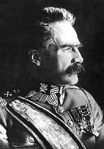July saw the last real offensive of the Imperial German Army in the west. Ludendorff wanted one more shot at drawing British troops in Flanders south in order to launch his Belgian offensive (Operation Hagen), though the previous operations had failed to do that. On 15 July Operation Friedensturm (or the Second Battle of the Marne) began: 40 divisions of the First, Third and Seventh Armies were launched southwards to the east and west of Reims, which was too strongly fortified to assault.
The offensive ran into trouble even before it got started. From prisoners and air reconnaissance the French leaned – like the Italians at the Piave – when and where the blows would fall and shelled the enemy troops in their assault trenches. They had also learned from the Germans over the years, and east of Reims Fourth Army commander Henri Gouraud had prepared a serious defense in depth, the main trench line located several miles behind the forward strong points, beyond the range of the German guns. Most of the French guns were behind the main line on reverse slopes, where they could only be spotted from the air, which was dominated by the Allies, and the initial German barrage did very little damage.
Reaching the main line, the Germans were compelled to delay the assault in order to regroup and rest and bring up their own guns. When they attacked the next morning, the undamaged French artillery tore them apart, as it did a second assault at noon. A French counterattack later that same day, though failing to achieve a breakthrough, nevertheless made it clear to the Germans that this push was not likely to succeed. They dug in.
The western arm of the offensive did better against the French Sixth Army, despite the barrier of the Marne River. While German guns pounded the south bank for three hours, German troops swarmed across the river on rafts and boats and began constructing a dozen minimalist bridges under a rain of bombs (40 tons) from the French air force, demonstrating the relative ineffectiveness of aerial bombing. By nightfall the Germans had established a substantial beachhead on the southern bank, and Ludendorff was delighted.
But not for long. For all the usual reasons, now exacerbated by growing supply problems (especially food and gasoline) caused by the Allied blockade, the attack quickly began to falter. On 18 July Ferdinand Foch, now Supreme Commander, launched a major counterattack (actually an already planned offensive against the now expanded German salient) comprising 24 French divisions, 2 British, 2 American and almost 500 tanks. This was the Battle of Soissons, and on July 20 the Germans were forced back across the Marne, and Château-Thierry was retaken the next day. By 6 August the Allies had retaken virtually all the salient and pushed the German line back to the Aisne-Vesle River line.
Incidentally, during the battle an Austrian dispatch runner in a Bavarian regiment was awarded the Iron Cross, First Class on 4 August, a rare decoration for an a lance corporal. His name was Adolf Hitler.
The Spring Offensive had failed, and though it would take the Germans (or at least their military leaders) another three months to accept it, Germany had clearly lost the war. While the offensive had obtained huge chunks (by Great War standards) of real estate, there had been no strategic breakthrough, neither in Flanders nor in the south. The successes did little more than eliminate large numbers of the irreplaceable specialized assault troops and exacerbate the growing manpower problem by dramatically lengthening the German lines. By the middle of July German rifle strength on the Western Front had finally fallen below that of the Allies, and the Americans were pouring in. Ludendorff could hardly have failed to think of the million men he had left in the east; as he was being forced to withdraw on the Western Front, German soldiers were advancing in the Caucasus, more than two thousand miles to the east.
In the former Russian Empire things did not look promising for the Bolsheviks. On 13 July the Czechs (remember the Czech Legion? – see Reports #44 and #45) took Irkutsk in Siberia and the next day Kazan in eastern Russia; they already controlled Vladivostok. Probably the best military force in central Asia, the Czechs were generally successful against the fledgling Red Army and not ony encouraged various anti-Bolshevik groups but finally convinced President Wilson, already under Allied pressure, to send American troops to Vladivostok. The Legion’s impressive successes also helped pump up Allied enthusiasm for the creation of a Czechoslovak state.
The Czech Legion also played an inadvertent role in the fate of the Romanov dynasty. The immediate royal family had since May been imprisoned in Ipatiev House (renamed the House of Special Purpose) in Yekaterinburg, which the Czechs and other Whites were approaching in early July. Lenin and others had discussed execution, but Lenin wanted to put Nicholas on trial first. With the enemy driving on Yekaterinburg local Soviet officials dispatched an emissary to Moscow, but there is no hard evidence that an official reply was ever sent, and the local commander, Yakov Yurovsky, determined to carry out an order for execution from the Ural Regional Soviet.
In the early morning of 17 July Nicholas, Alexandra, their daughters Olga, Tatiana, Maria, Anastasia, the heir, Alexei, and four attendants, a maid, cook, footman and doctor, were hustled into a 20 x 16 foot basement room, where they were told to wait for transportation out of the town. A bit later Yurovsky and nine others, mostly local Chekists (secret police), entered, read the death sentence and began blasting away with handguns, each having been assigned a target. The whole business immediately turned into a macabre farce, emblematic of much Soviet police work for the next three decades.
Nicholas was promptly killed, inasmuch as all the assassins, despite their assigned targets, apparently wanted to kill the Czar, and Alexandra went next with a single bullet to the head. Then complete chaos broke out as the shooters filled the room with bullets, and within minutes dust and smoke (one of the guns used black powder) made it impossible to see. Yurosky ordered the firing stopped, the smoke was allowed to clear, and the executioners then discovered that all five children were still alive, only one of them even injured.
The Bolshevik Keystone Cops then switched to bayonets, since the fusillade had awakened many of Ipatiev House’s neighbors, and this was supposedly a secret operation. But because of the ineptness (and in some cases drunkenness) of the men and the immense quantity of jewels sewn into the family’s clothing (18 pounds were recovered), bayonets were far from satisfactory, and shooting resumed, this time more effectively to the head. Some twenty minutes after the shooting had first begun, the royal family and the retainers were finally dead. Only Alexei’s dog, Joy, survived, to be rescued by a British officer.
The black comedy of errors then continued as Yurovsky made to dispose of the bodies. At the first site, an abandoned mine pit, the waiting hired help were all drunk and angry that they had no chance to rape the women, and once the bodies were put in the shaft, it was found to be too shallow. The next morning the corpses were loaded on a truck and the following day driven to a second site, but the truck got stuck in the mud, and an exasperated Yurovsky had his men dig a shallow grave, into which nine of the bodies were dumped after being mutilated to disguise them. Alexei and a sister were burned and their smashed bones buried a short distance away.
The Soviet government could not under any circumstances allow Nicholas or his son to fall into the hands of the Whites, and even losing control of the Romanov women was politically dangerous. But the poor planning and ineptitude of the Bolsheviks, combined with their seemingly innate cruelty, turned a pressing political question into a massacre of innocents, emphasized by the slaughter of 14 more Romanovs and 13 retainers in the next three months. Lenin allowed the public announcement of Nicholas’ execution, but the murder of the rest was denied until 1926, when it was blamed on others. Poetically perhaps, three of the assassins were later shot by the Cheka’s successor, the NKVD.
In less dramatic news from the former Russian Empire, on 26 July most of the French Expeditionary Force arrived at Murmansk, joining the British forces already there. On the same day, far to the south in Azerbaijan, the Bolshevik government in Baku was overthrown by a coalition of other Russian groups and replaced with the Central Caspian Dictatorship, which would survive until September.
Remember Colonel von Lettow-Vorbeck and his Askaris, dodging and fighting a quarter million Allied troops in East Africa? Pursued by large formations of the King’s African Rifles and hard pressed for ammunition, on 1 July he attacked a superior force defending Namaccura in southern Portuguese East Africa (now Mozambique) and captured a huge amount of ammunition, rifles, food and liquor. He allowed his men a day to attack the liquor: “The risk of a wholesale ‘jollification’…was gladly taken.”
Fully equipped, Lettow-Vorbeck was now in a position to cross the Zambesi River and invade Rhodesia, but he knew that was what his pursuers expected and instead moved northeast toward them. The Allied troops lost complete track of him for two weeks, during which time he crossed the Namirrue River and turned west and then north, passing right through the enemy columns. By the end of July his force was back in German East Africa, having once again eluded immensely superior forces.
In other news, on 6 July Italian and French troops began an offensive north in Albania and seized Berat four days later; on the 22nd the offensive ground to a halt. Meanwhile, more pocket states were jumping on the bandwagon: on 12 July Haiti declared war on Germany, followed by Honduras a week later. On 3 July the figurehead Sultan Mehmed V of the Ottoman Empire died and was succeeded the next day by the equally powerless Mehmed VI, who reigned until 1 November 1922, when the Sultanate was abolished and the last Sultan sent into exile.
Finally, an irony: on 17 July the German submarine U-55 sank the RMS Carpathia, the vessel that had rescued the bulk of the survivers of the RMS Titanic in 1912.




























